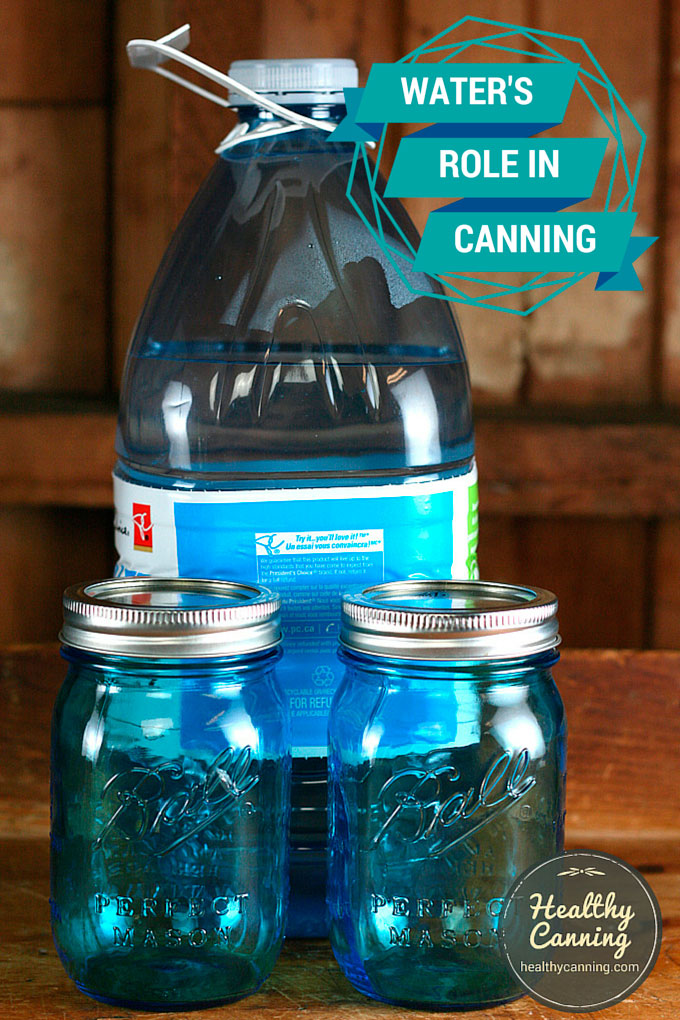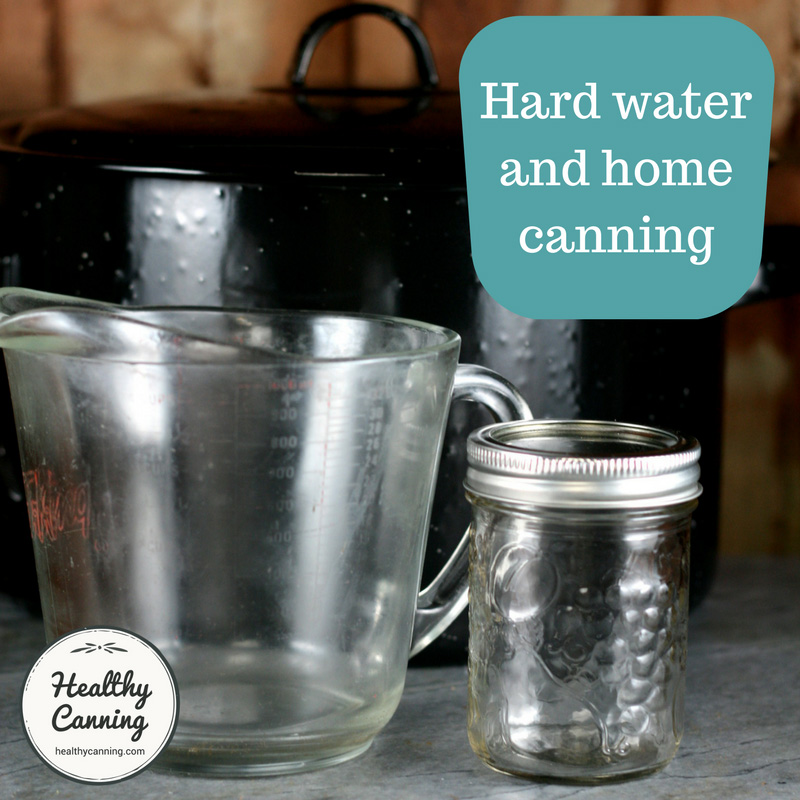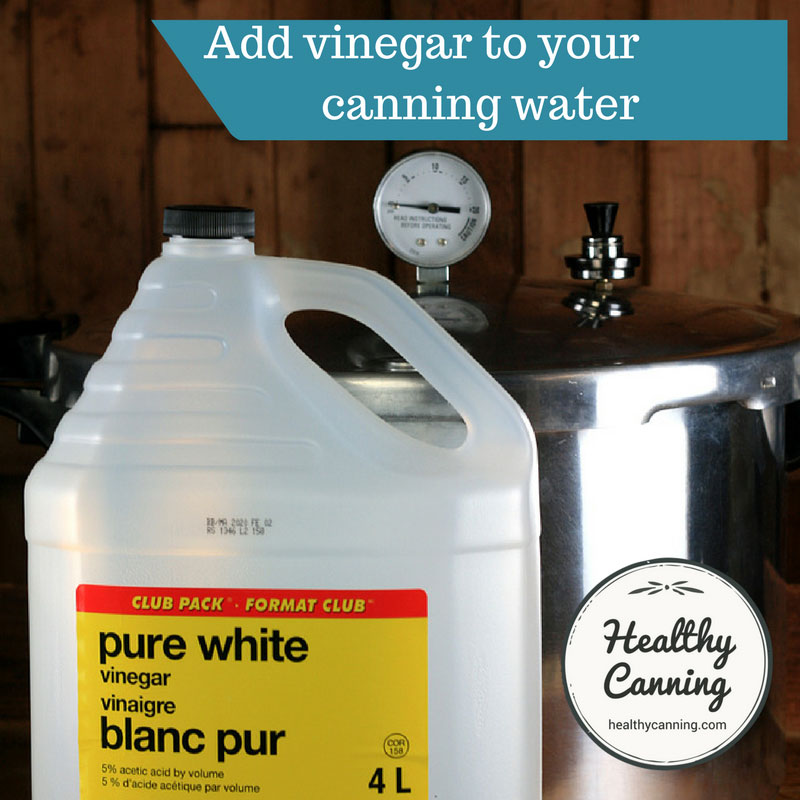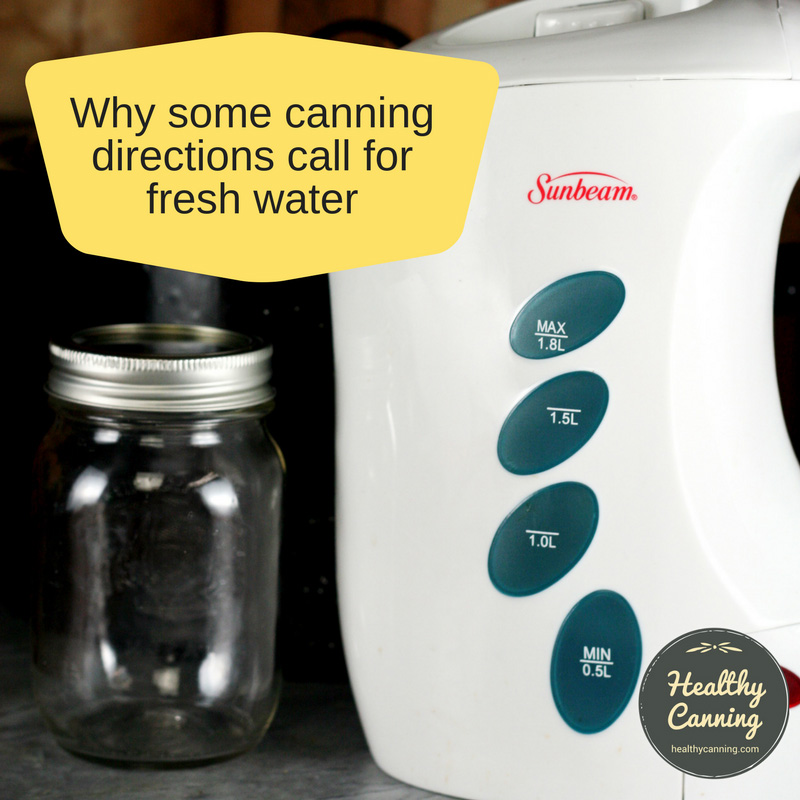Water has such a huge role in home canning, yet we take it for granted.
There are three issues to consider:
1) Clean, safe, potable water (See page on bacterial load.)
2) Hard water (See page on hard water.)
3) Using fresh water instead of blanching water to fill the canning jars, to reduce starch density inside the jar on some blanched items such as potatoes. (See page on fresh water in jars.)
See also the page on: Acidity of water and vinegar combinations.
Note as well that canning directions for fish and seafood explicitly advise against using stream, lake or seawater either for washing the fish or seafood in, or, for filling the jars with. They strongly recommend that you use potable tap water instead.
Nitrate or nitrite in well water
Kansas State University Extension offers this advice:
If you use well water, annual testing for water safety is important. If your report shows high levels of nitrate and/or nitrite, steps must be made to make the water safe.
In home canning or in cooking, boiling the water will not remove nitrate or nitrite. In fact, heat will concentrate and increase the content. The Environmental Protection Agency states the maximum total nitrate and nitrite level is 10 parts per million.
Treat well water with anion exchange, distillation, electrodialysis or reverse osmosis processes. Contact a water treatment professional to select the right treatment for your well water.” [1] Blakeslee, Karen. Using Well Water in Canning. 13 September 2017. Accessed September 2017 at https://enewsletters.k-state.edu/youaskedit/2017/09/13/using-well-water-in-canning/
Hard water and home canning
Vinegar in canning water
Why some canning directions call for fresh water
References





Mary
They are currently treating our water in our village with extra chlorine as there was a positive test. I am wondering if this extra chlorine will effect my canning. I am canning beets today and carrots as well.
Healthy Canning
It will not affect your canning.